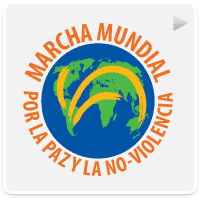The Invisibles against US missile defense
Bolivia and Evo Morales

In 2005, Evo Morales became the first indigenous President of Bolivia, ending 500 years of colonial and neo-colonial rule in South America’s poorest country. With a stunning 54% majority, his mandate was clear: renegotiate control over the country's natural resources, implement land reform, and draft a new Constitution that recognizes indigenous rights and regional autonomies.
In his first two years, Morales has made good. He has renegotiated contracts with oil and gas companies (all of whom still operate profitably), increasing State revenues by about 40%. These revenues have gone to improving childhood education, housing programs, healthcare (six new hospitals in 2007), and to a new universal monthly pension for the elderly.
The Morales Administration also formed an Assembly to draft a new Constitution. Subject to ratification by popular vote, the proposed Constitution protects human rights, decentralizes power, and grants autonomy to regions and communities. It formally recognises the many indigenous nations who have been discriminated against for centuries, and is a global model of Non-Violence through its explicit rejection of War as a method of conflict resolution.
Carrying out these reforms has not been easy. While some on the Left protest that Morales moves too slowly, it is the former-ruling elite in the resource-rich lowlands that has been most virulent in their opposition to the man they call "the Dirty Indian".
At every step, they have subverted his mandate through violence, media disinformation, physical assaults and threats to divide the country. Their latest action is by far the most shameless: the organizing of a referendum for "Autonomy" on May 4, 2008 in Santa Cruz, the most conflictive province. This is in fact a call for secession, a repugnant attempt to retain sole control over the resources that exist to benefit all Bolivians. Ignoring repeated calls for dialogue, they fan the flames of racism and hate.
In the face of all this, President Morales has been an inspiring example of non-violence, insisting on dialogue and negotiation, and adhering to democratic laws.
Evo Morales deserves our strong support. Forging a new 'humanist' path between the failures of Marxism and Neo-liberalism, his is a truly non-violent revolution; a revolution of the ballot-box; a revolution that seeks to give voice to the forever 'voiceless'. What happens in Bolivia could certainly affect other countries in the region, and beyond.
Years ago, when South Africa elected its first Black President and ended apartheid, the world applauded. The situation of cultural and economic "segregation" is not dissimilar in Bolivia, and it is for this reason that people around the world have begun to call Evo the "Mandela" of Latin America.
The crisis in Bolivia should be of concern to all who believe in democracy, social justice, and the right of a people to choose a new future through non-violence. It's time the Canadian Government gave its public support to Bolivia's democratic process of change.
www.boliviasupport.blogspot.com
« back










